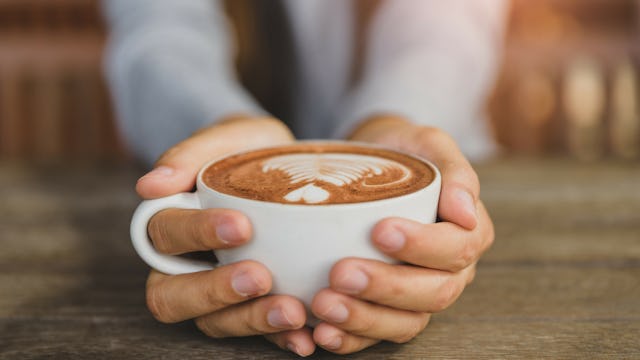Coffee Naps Are A Thing, And This Is Why They Are So Amazing

Before I had kids, I never knew there’d be a point in my life where I’d need coffee to survive. Maybe that’s a slight exaggeration. Let me rephrase: I need coffee so everyone else can survive.
Ever seen someone on Day 3 of a cleanse? It’s not pretty. I don’t recommend it. That’s just one example of what life without coffee can do to you.
My family took a vote and they think I’m much nicer when I’m fully-caffeinated. Coffee is everything. From the moment I wake up, it helps me keep it together so I don’t snap and yell so loudly that even our neighbors need therapy.
In fact, the only thing I love more than coffee is sleeping. And according to science, they’re even better when they’re paired together.
What a time to be alive, amiright?
“Coffee naps” can help you feel more refreshed during the day and even help you sleep better. Coffee naps are exactly what they sound like: You drink some coffee (or other caffeinated beverage like soda or tea) and then take a quick, 15-30 minute nap.
This is considered the ideal nap length because it takes about 15-30 minutes for the caffeine to reach its peak level in your system. That way, when you wake up from your quick nap, you feel more refreshed and alert due to the caffeine kicking in.
Be sure to set an alarm, because if you sleep more than 30 minutes, you’ll miss the peak effectiveness of the coffee nap. And if you fall into a deeper state of sleep after 30 minutes, it can be tougher to wake up, even with the caffeine.
When you take the nap can make a difference as well.
“The lowest point of our circadian rhythm is in the afternoon,” Dr. Suzanne Stevens, sleep specialist at the University of Kansas, told the Huffington Post. “If the nap can be timed just right, you can have hours of being more productive after the coffee nap.“
Still not convinced you need coffee naps in your life?
A study from 1997 found that when adults had 200mg of caffeine (about 2 cups of coffee) and took a nap, they performed better on simulated driving tests than participants who took a nap without the caffeine. While a Japanese study from 2003 identified caffeine as having the highest impact on alertness after a short nap, people who took caffeinated naps scored better on a series of memory tests. Another study from 2006 found that caffeinated naps led to improved performance and alertness of night-shift workers.
Coffee naps aren’t for everyone of course. Anyone who struggles with insomnia, anxiety, or avoids caffeine for health or religious reasons will obviously want to skip them.
But if you’re looking for a way to feel more energized and more productive, a coffee nap may be just what you need. And for anyone who loves coffee and loves naps, it sounds like a match made in paradise.
No word on where you’ll be able to find the time for that half hour of quiet so you can actually sleep. Unless you’re like my husband, then I’m sure you’ll find a way.